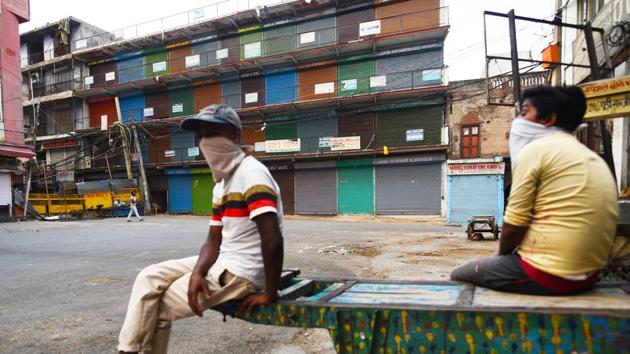The government imposed a flawed lockdown. It has caused immense suffering
Covid-19 cases are surging; the health care system is under stress; and India is facing its deepest recession
June 25 marked exactly three months since the initial 21-day lockdown that began as a response to the coronavirus pandemic. Announced at four hours’ notice, without consultations with chief ministers, the lockdown was Prime Minister (PM) Narendra Modi’s big solution to the greatest public health challenge of our times. The lockdown, however, has proven to be the biggest fiasco of our times.

Let me explain with numbers — not opinions, but hard numbers. As the lockdown began, there were 86 new cases reported in India on March 25. By June 1, the date of Unlock 1.0, the transition to a post-lockdown phase, the number of new daily cases was 7,723.
Three weeks later (June 21), it was 15,140. And rising. Far from flattening the curve by the end of May — or whenever this had been promised at the evasive union health ministry briefings — the number of cases is only rising. India is now expected to reach a peak in cases towards the end of July or even August. Nobody can say anything with any certainty or credibility.
The implementation of the lockdown left a lot to be desired. The period was wasted and not used to ramp up testing and other capacities. India is now number four among all countries when it comes to the Covid-19 caseload, but, at the beginning of this week, was ranked at 139 when it came to testing per million population. Initially, the Centre did not supply an adequate number of testing kits to the states. The kits that were then sent to the states were faulty and unusable.
The lockdown has come at an immense economic cost. In March — as the coronavirus crisis began to become obvious, with the government in denial for weeks on end — $16 billion of foreign capital left India, an all-time high. In April, the unemployment rate rose to 23.8%, another all-time high. In April, exports dropped by 60% as well.
About two of every five micro, small and medium enterprises (MSMEs) and self-employed businesses have started shutting down for good. As per the Clothing Manufacturers Association of India, there was an 84% dip in textile sales. Overall, the 21-day lockdown cost India an estimated Rs 35,000 crore a day.
An economy is ultimately about people. Left to fend for themselves, ordinary Indians suffered immeasurably during the lockdown. As many as 92 million urban Indians and 89 million rural Indians exhausted their savings within the first 21-day lockdown. By the end of June, 139 million urban Indians are anticipated to run out of their savings .
People were left desperate. The stories of migrant workers, denied even trains till May 1, and forced to buy tickets after that, is well known. But do you know the total number of non-Covid-19 deaths during the lockdown? Here’s the break-up : Exhaustion: 47; starvation and financial distress: 167; absence of medical support: 63; migrant workers trying to walk home: 209; and those who died on shramik trains: 95.
That adds up to 581 deaths — deaths completely unrelated to the coronavirus and deaths directly correlated to a poorly-planned, poorly-executed lockdown. Who is responsible?
An economic stimulus for business and, much more important, a relief package for the poorest and most vulnerable citizens is to be expected after a catastrophe such as Covid-19 and the lockdown. Germany has a Gross Domestic Product (GDP) 1.5 times that of India’s and El Salvador a GDP that is 100th the size of India. Both these countries, and so many others, have announced generous cash transfers to those who need them.
In India, the government has stubbornly to refused to provide genuine cash transfers to the poorest of the poor, those who have lost jobs and even hopes of an income. Instead, a Rs 20 lakh crore-loan programme has been announced, masquerading as a relief package .
Three months after that dramatic 8 pm announcement, this is where India stands. Was a lockdown of some sort needed to tackle the pandemic? Without a doubt, it was. But did the government give us the lockdown we needed, with the preparations and the in-period systemic upgrades and capacity enhancements that we deserved? The answer to that is a resounding No.
The result is that an economy that was already sinking by the beginning of 2020 has now been knocked down. India is facing not an ordinary slowdown but the deepest recession in post-Independence history. This is the unfortunate legacy of the past three months.



